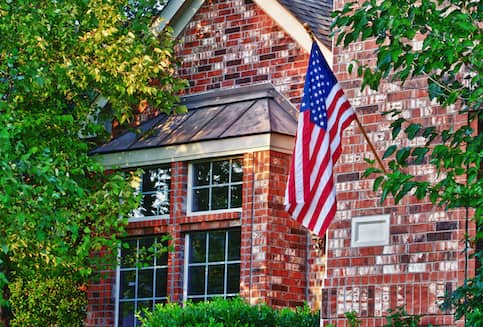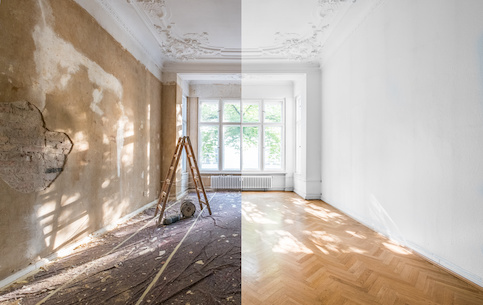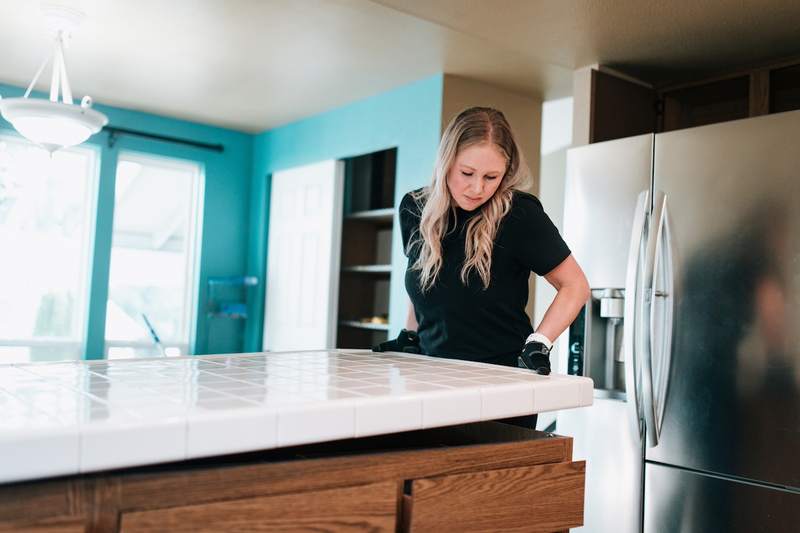The costs of purchasing a home might seem never-ending on your journey to closing. With many fees involved in the closing process, you might easily spend thousands of dollars. But if opting for a VA loan, there are VA non-allowable fees that are off-limits to your lender.
Before you jump into the VA loan process, here’s what you should know about VA non-allowable fees.
What Are Non-Allowable VA Fees?
When shopping for a home with a VA loan, you’ve met the specific eligibility requirement determined by the U.S. Department of Veterans Affairs (VA). The goal of the VA loan program is to provide an affordable homeownership opportunity for veterans.
One way that the VA keeps out-of-pocket costs for veterans relatively low is by limiting what kind of fees veteran home buyers pay at closing. Specifically, the VA has outlined non-allowable fees that lenders are unable to charge borrowers.
While closing on a house with a VA loan, you’ll be able to avoid some of the fees that other borrowers face.
Find out if a VA loan is right for you.
See rates, requirements and beneifts.
See What You Qualify For
Buy A Home
Discover mortgage options that fit your unique financial needs.

Refinance
Refinance your mortgage to have more money for what matters.
Tap Into Equity
Use your home’s equity and unlock cash to achieve your goals.
How Are Your VA Non-Allowable Fees Determined?
If closing on a home with another type of loan, the list of fees can be extensive. But the VA has set up specific guidelines to help limit the burden on veteran homebuyers.
According to the VA, the borrower can pay a maximum of the following:
- A 1% flat fee charged by the mortgage lender: If the lender charges the flat fee, you cannot pay for other non-allowable costs. This covers a variety of the lender’s expenses to originate your loan.
- Reasonable amounts for different itemized fees and charges: If they don’t charge a 1% fee, lenders are allowed to charge a reasonable amount for specific costs established by the VA. A few of the allowable fees include escrow fees, document preparation fees, notary fees and more.
- Reasonable mortgage discount points: When you purchase mortgage discount points, you’ll lower your interest costs over the life of the loan. Although you can lock in savings, you’ll need to have the funds available upfront.
What Is The 1% Flat Fee?
The 1% flat fee is designed as a catch-all for your lender’s costs associated with originating the loan, as well as processing and underwriting it.
If the lender charges a flat fee, the VA states that you cannot pay for several other fees, including:
- Loan application fees
- Escrow fees
- Interest rate lock-in fees
- Tax service fees
- Document preparation fees
- Postage costs
- Notary costs
If you have questions about what fees are included in the 1% flat fee, talk to your lender. Any confusion can be sorted out by contacting the VA.
Who Pays VA Loan Non-Allowable Fees?
Since the VA loan comes with tight rules about what can and cannot be paid by the buyer, other parties in the transaction must pick up the cost. Depending on the fees charged by the lender, the seller or the real estate agent may pick up the cost. Or sometimes, the mortgage lender will waive the fee altogether.
When the seller is asked to pick up the tab, that often brings both parties back to the negotiation table. Many sellers are willing to accommodate the request, especially if the buyer is willing to pay a higher sale price for the home.
List Of VA Non-Allowables
As you move forward with a VA loan, veteran borrowers need to be aware of the non-allowable fees. Here’s a look at the fees that you cannot pay when using a VA loan.
- Real estate attorney fees: Attorney fees cannot be included in the closing costs.
- Brokerage fees: Real estate broker fees cannot come out of the buyer’s pocket. With that, the seller is often left to pay for this expense.
- Prepayment penalties: If an existing lien on the home has a prepayment penalty involved, a VA loan cannot be used to cover the dee.
- HUD/FHA inspection fees for builders: Builders and sponsors must conduct inspections for newly constructed homes at their own cost.
If you spot any of these fees in your closing documents, alert your lender about the problem.
What Are VA Allowable Fees?
As a homebuyer pursuing a VA loan, the following fees are allowed in your closing costs:
- VA appraisal fee: A VA appraisal is required to determine the value of the home.
- VA funding fee: Home buyers pay this fee directly to the Department of Veterans Affairs.
- Title insurance: Title insurance is a fee that you won’t want to skip. It protects both you and the lender against claims against the property.
- Recording fees: When the property transfers ownership, the local government will charge a recording fee.
Other VA Loan Benefits
The strict rules surrounding the VA home loan fees are just one of many perks involved with the VA loan. Additionally, eligible borrowers will enjoy no down payment requirement and no private mortgage insurance (PMI).
However, you’ll need to meet the military service requirements before pursuing this attractive loan opportunity.
The Bottom Line
When working with the VA loan, there are some fees that you simply cannot pay as the borrower. As you move through the process, work closely with your lender and real estate agent to make sure everything goes off without a hitch.
Find out if a VA loan is right for you.
See rates, requirements and beneifts.

Sarah Sharkey
Sarah Sharkey is a personal finance writer who enjoys diving into the details to help readers make savvy financial decisions. She’s covered mortgages, money management, insurance, budgeting and more. She lives in Florida with her husband and dog. When she's not writing, she's outside exploring the coast. You can connect with her on LinkedIn.












